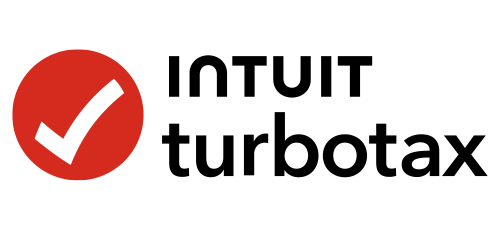With Expert 365, get expert help cleaning up your books for tax time, plus support on sales tax and payroll reporting year-round.
Incorporating in Canada: Tax Benefits & Advantages | TurboTax®
TurboTax Canada
February 12, 2025 | 6 Min Read
Updated for tax year 2025


A new way to file your business taxes is here!
How do you know if incorporating is right for you?
Whether you’re looking to scale or you’re starting your own business, get a full overview on reasons you should or shouldn’t incorporate. If you’re curious about the 3 tax benefits of incorporating your business in Canada, keep scrolling!
Key Takeaways
- Corporations are considered separate legal entities that can own assets, have a bank account, operate a business, and pay taxes.
- Corporate tax rates are generally lower than personal tax rates, but the company has to make active business income that stays in the corporation.
- Incorporating your business and splitting your business income with family members can help you save on taxes.

What is incorporation?
In Canada, corporations are considered separate legal entities that can own assets, have a bank account, operate a business, and pay taxes– just like a person.
Each corporation in Canada must have at least one shareholder. In simplest terms, these are people who invest money into your business in exchange for a percentage of ownership of your corporation. While there are different types of shareholders, they have influence over major business decisions in how your corporation is run, managed, and controlled.
So it’s important you choose wisely in the types of investors and shareholders you bring on to your company.
What is the process of incorporating a business in Canada?
You can incorporate either federally or provincially. This depends on whether or not you plan to do business in more than one province. For example, if you incorporate provincially, you have to register and file additional paperwork before you can operate your business in another province.
To set up a corporation, apply to the federal or a provincial government, and submit the following:
- a unique name
- proposed by laws
- the names of the first directors
You can save the cost of finding a unique name by asking the government to assign a unique number (to create a numbered corporation). The government will then issue a certificate of incorporation, making you the owner of a separate legal entity that pays taxes in its own right.
Think you’re ready to incorporate? You don’t have to do it alone—incorporate with Ownr. By taking out confusing legal jargon and streamlining processes, entrepreneurs at all stages can easily register or incorporate their business, automate legal documentation, and so much more—all while saving time and money.
What are 4 advantages of incorporating in Canada?
- Limited liability: Corporations offer some liability protection to its owners (shareholders) in case the corporation gets sued.
- Establish credibility: Some businesses, contractors, or government agencies will only work with corporations. This also sends a message to potential investors and partners that you’re serious and in it for the long game.
- Lower tax rates: The tax rate for business income in a corporation is usually lower than your personal tax rate if you’re self-employed (as long as the money stays in the corporation).
- Continuous existence: Even if the original founders, owners, or shareholders leave, corporations can continue to exist, get sold, or transferred to other people such as family.
What are 2 disadvantages of incorporating in Canada?
- Higher costs and more complex to maintain: Incorporating can be expensive and requires more effort in maintaining your corporation status, depending on how complex your business structure is. For example, setting up your incorporation, creating shareholder agreements, maintaining minute books, preparing your company’s yearly tax filings, all cost money. It adds up!
- No access to personal tax credits: Even though the tax rate is usually lower for corporations, the corporation doesn’t have access to personal tax credits as you would on your personal income taxes.
That’s why any amount of taxable income usually triggers some tax on the corporation. With proper planning between your corporate tax return and your personal tax return, it’s possible to minimize the overall impact.
If this feels like a lot, you can have a tax expert maximize every industry-specific deduction to get your best tax outcome, guaranteed.
What are 3 tax benefits of incorporating your business?
1. Corporate tax rates are lower than personal tax rates
Corporate tax rates are generally lower than personal tax rates, but the company has to make active business income that stays in the corporation. This means that your gross income can’t get distributed back to its owners via dividends or salary.
If you’re relying on the money your company earns for your personal living expenses, your company has to pay you enough. You’ll have to pay personal income tax on that amount, so the tax advantages are gone.
For example, let’s say company A earns $150,000 and the owner needs $80,000 to live on. That owner can leave $70,000 in the corporation, and pay reduced income tax on that amount until they decide to withdraw that $70,000 at a later date.
2. Save on taxes via income splitting and dividends
Incorporating your business and splitting your business income with family members can help you save on taxes. For example, if you hire your spouse or children as employees, the corporation can deduct the amount it pays them as an expense. So your family members can pay tax at their own personal income tax rates. This can be very advantageous if they don’t earn any other income as their personal tax rate could be lower than yours.
If you can’t hire family members to carry out work, you can make them shareholders and pay them dividends, which get taxed at a reduced rate. The corporation still pays taxes on this money, but depending on your family members’ personal incomes and the province they live in, there may be an overall tax savings.
Note: Tax on Split Income (TOSI) rules came into effect on January 01, 2019. These changes were significant for small business owners and their families because many of the tax flexibilities they had enjoyed until 2019 were no longer present. It’s very important to discuss income splitting strategies with your accountant to avoid being on the CRA’s bad books. Read more on the CRA’s rules for income splitting.
3. Claim one-time capital gains deduction, the Lifetime Capital Gain Exemption (LCGE) of up to $1.25 million (for Tax Year 2024)
One of the biggest tax advantages of incorporation happens when you sell your business. You can either choose to sell the shares of the corporation or its assets.
When you sell shares of a corporation, you sell an independent entity with its assets and liabilities as a unit. The potential impact of this is that you’d be personally liable to pay taxes on capital gains from the sale of those shares that you personally own.
When you sell the assets of a corporation, you sell the individual assets owned by that corporation. In this case, the corporation will be liable to pay taxes on the sale of those assets.
As of Tax Year 2024, you can potentially claim a capital gains deduction up to a cumulative lifetime limit of $1.25 million from the sale of your Canadian corporation shares. But there are certain conditions you have to meet. Discuss this with your accountant prior to selling your shares.
Your taxes are done right, any way you choose.
File on your own, with live help, or hand your taxes off to an expert.
Learn MoreFrequently Asked Questions
Regardless of whether you’re self-employed or have incorporated your business, you’ll need to register your business with various government bodies. Depending on your situation, you’ll have to:
- Register with the Canada Revenue Agency (CRA) in order to collect and remit GST/HST.
- Register with a provincial body (such as the Ontario Business Registry or the Registre des Entreprises du Québec) to operate certain businesses in those provinces.
Usually, you’ll need the following documents to incorporate:
- Articles of incorporation
- Shares
- List of directors
- Corporation name (if not, you will be issued a number)
- Registered office address
Related articles

© 1997-2024 Intuit, Inc. All rights reserved. Intuit, QuickBooks, QB, TurboTax, Profile, and Mint are registered trademarks of Intuit Inc. Terms and conditions, features, support, pricing, and service options subject to change without notice.
Copyright © Intuit Canada ULC, 2024. All rights reserved.
The views expressed on this site are intended to provide generalized financial information designed to educate a broad segment of the public; it does not give personalized tax, investment, legal, or other business and professional advice. Before taking any action, you should always seek the assistance of a professional who knows your particular situation for advice on taxes, your investments, the law, or any other business and professional matters that affect you and/or your business.









